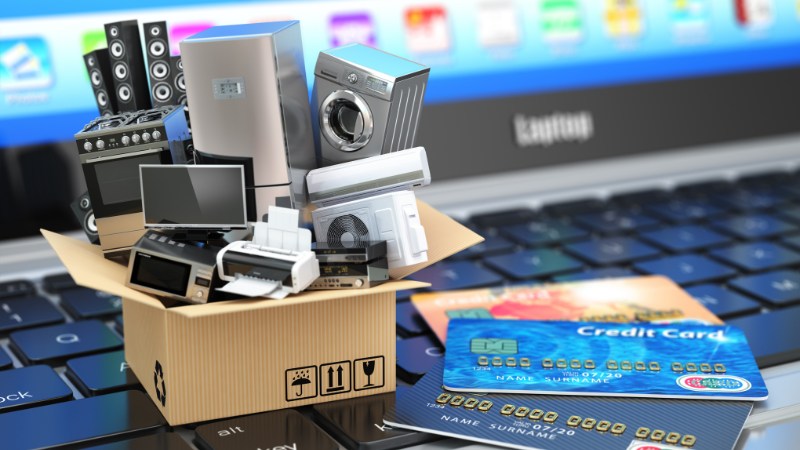Have you ever felt that sinking feeling of regret after realizing you’ve spent too much money on things you didn’t really need after an online shopping spree? Online shopping offers us countless conveniences, but it also comes with pitfalls, especially when it comes to overspending.
So, how can we keep this habit in check? Let’s explore the following 6 helpful tips together!
1 Signs You’re “Addicted” to Online Shopping
Do you often feel empty and turn to shopping apps to fill that void? Or do you simply treat yourself to new items on a boring day, even if you don’t really need them? If your answer is yes, then you might be caught in the spiral of online shopping addiction.
Typical Signs
-
Impulsive Shopping: You often make hurried purchases without carefully considering your actual needs.
-
Overspending: Your wallet is always left empty after each shopping spree.
-
Hoarding: Your home is filled with items that have never been used.
-
Regret After Purchasing: You frequently feel guilty and anxious about overspending.
-
Spending Too Much Time Shopping: You spend hours each day browsing the web and looking for new products.
Why Do You Get Addicted to Online Shopping?
Online shopping provides a sense of relaxation and stress relief, and it makes us feel happy. However, if this behavior is not kept in check, it can lead to serious consequences such as:
-
Financial Problems: Debt accumulation and difficulty in financial management.
-
Impact on Life: Loss of time and neglect of work and family responsibilities.
-
Psychological Pressure: Feelings of guilt, anxiety, and stress.
 Signs of Online Shopping Addiction
Signs of Online Shopping Addiction
For further reference:
2 6 Tips to Control Online Shopping Effectively
Understand Your Behavior and Needs
Have you ever felt that you’re buying too many unnecessary things? This could be because you don’t fully understand your shopping habits. Imagine, every time you see a discounted dress, you immediately buy it without thinking. To avoid this, ask yourself simple questions like, “Do I really need it?”, “Do I already have something similar?”, “Where will I wear it?”.
When you feel like shopping just to relieve stress, try taking a break from your phone and do something else like cooking, cleaning, or exercising. Give yourself 24 hours to think it over. You’ll be surprised to find that many of the items you wanted to buy are actually not necessary. Controlling your shopping behavior will not only save you money but also make you happier and more relaxed.
 Understand Your Behavior and Needs
Understand Your Behavior and Needs
Resist Temptations
Have you ever wondered whether you should buy something when you see a huge discount? Instead of rushing into a decision, try to visualize what else that amount of money could bring to your life. For example, you could use it for a vacation, a new course, or simply to relax and spend time with your family and friends.
To avoid getting sucked into endless sales, try a few tricks: Unsubscribe from promotional emails, turn off notifications from shopping apps, or simply spend less time on social media. By doing so, you won’t be caught in the FOMO (fear of missing out) spiral and can make smarter consumer decisions.
 Resist Temptations
Resist Temptations
Develop New Habits
Instead of letting negative habits control you, take the initiative to cultivate new and positive ones. Starting with small changes, you’ll gradually notice a big difference. Imagine yourself after a while: Full of energy, confident, and living with a purpose. That’s the motivation to help you persevere through initial challenges.
Rather than spending hours on electronic devices, try exploring new hobbies like painting, crafts, or learning a new language. You’ll be surprised to find your life becoming richer and more interesting than ever before.
 Develop New Habits
Develop New Habits
For further reference:
Create a Clear Shopping Strategy
To manage your finances effectively, creating a spending plan is crucial. Instead of spending randomly, allocate your budget wisely across different financial goals.
One effective way is to set up a separate shopping fund. By determining the maximum amount you’re allowed to spend each month, you can easily control your shopping and avoid impulsive purchases.
Tracking your expenses is also an essential part of financial management. By recording your spending, you can evaluate the effectiveness of your plan and make necessary adjustments.
 Create a Clear Shopping Strategy
Create a Clear Shopping Strategy
Make a List of Items to Buy
An online shopping list is like a roadmap that keeps you from getting lost in the maze of products. Instead of wandering aimlessly, you’ll have a clear path to your goal.
Imagine you’re on a treasure hunt, and your shopping list is the map leading to that treasure. When you find it, you’ll feel satisfied and save a lot of time.
 Make a List of Items to Buy
Make a List of Items to Buy
Find an Accountability Partner
When you feel lonely in your battle against online shopping addiction, reach out to people you trust. They will be your strong support system, helping you view issues objectively and make better choices.
 Find an Accountability Partner
Find an Accountability Partner
Thus, controlling online shopping habits is not difficult if we know how. By applying the above 6 tips, you now have effective tools to make smart shopping decisions, avoid overspending, and protect your wallet.
– Create a list before you start browsing and stick to it to avoid impulse purchases.
– Use price comparison websites and tools to find the best deals and save money.
– Take advantage of online coupons and promo codes to get discounts on your purchases.
– Sign up for newsletters from your favorite stores to stay informed about sales and exclusive offers.
– Be mindful of shipping costs and look for free shipping offers or opt for in-store pickup when possible.
– Practice safe online shopping habits by securing your device, using strong passwords, and only shopping on secure websites.





































